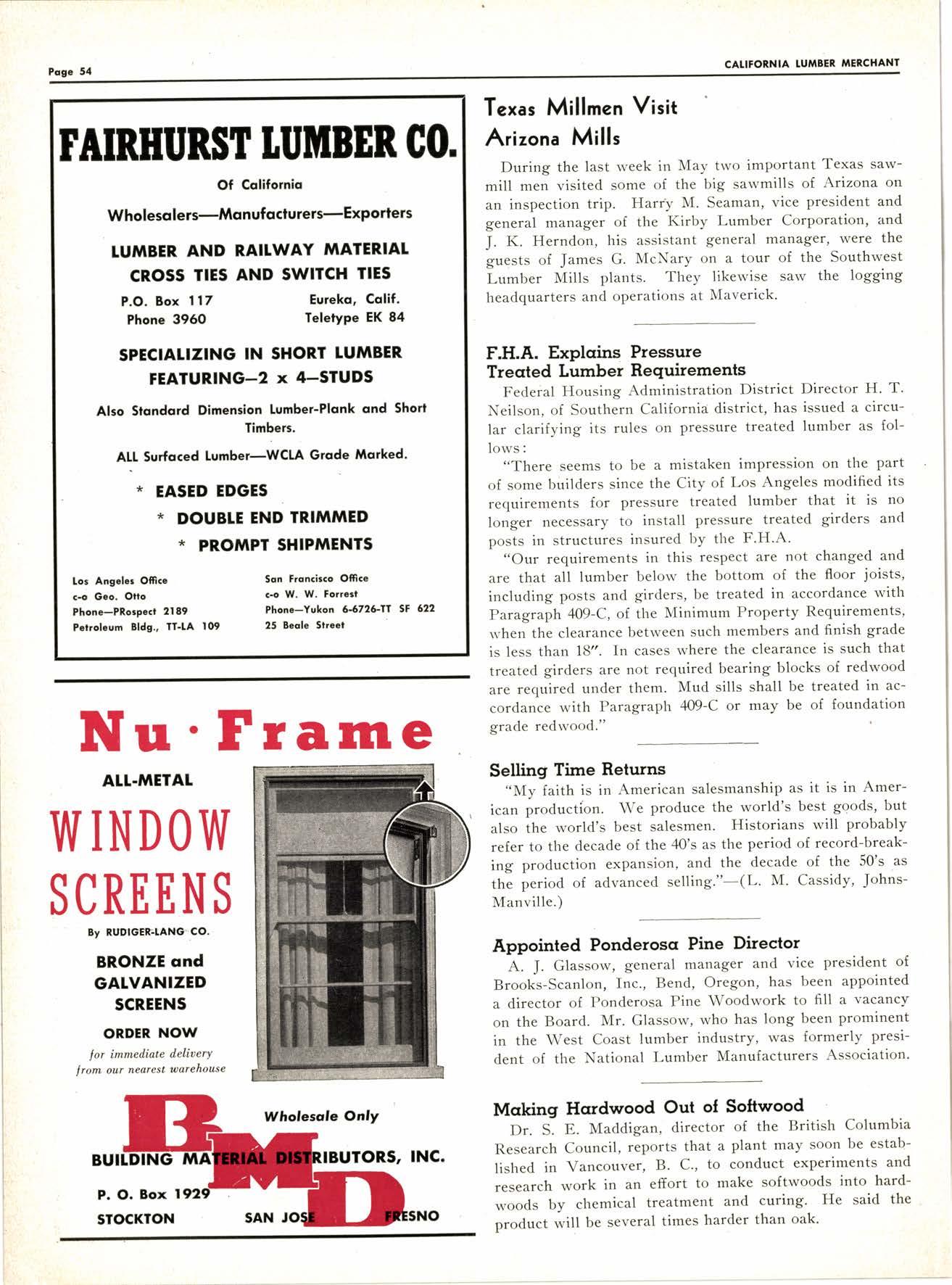
3 minute read
TNEATIITIG GOMPATY
God made the world. But He does not make YOUR world. He provides the raw materials, and out of them every man selects what he wants and builds an individual world for himself. The fool looks over the material, selects a few plates of ham and eggs, a few suits of clothes, a few dollar bills (or perhaps millions, in which case he considers himielf a great success) and is satisfied. The wise man builds his world out of wonderful opportunities, thrilling experiences, romance, adventure, friendshipS, and miracles Nothing wonderful ever happens in the life of the ham and egg m:rn. * ,n *
"Life
* i<
Charles A. Dana, the great editor of the New York Sun, gave his reporters the following advice: "Tell the truth always so as to shame the devil every time. You've got to square this paper with God Almighty and the Judgment Day every day you live. And that's the only way to edit a paper."
A Sunday trip to the beaches reminded me of what Will Rogers once said: "I never expected to live to see the day when girls would get sunburned in the places theY do now.'' f never believed that he made the oft-quoted remark that he never saw a man he didn't like. In his interesting life he saw many people of the worst type, murderers, rapists, kidnappers, wife-beaters, horse-thieves, and criminals of all sorts. I don't think that sweet-souled nian liked them, or that he ever said he did. ***
I heard Will lecture after a visit to Russia. He told about seeing the Russian people bathing on the public beaches, all of them stark naked. I recall how the audience roared when he chuckled and remarked that he "would have seen more of Russia if he'd seen less of some Russians"' * {. ,i.
One of the fine traits of his character was that he could take a trimming gracefully, admitting the other fellow's strength. Shortly after Will's return from Russia, Arthur Brisbane, famous editor, wrote some strong opinions about Russia. Immediately in his daily column, Will Rogers needled his friend for talking about Russia without having been there. The next day Bris- bane replied that one Leonardo had painted a world famous picture of the Lord's Last Supper, and that the painter not only was not at the supper, but was not even invited. I can imagine how Rogers chuckled at that one. But he didn't answer. He knew he had stuck his neck out, and got it axed. d<**
What are the obligations of a Congressman toward his constituents? Shall he use his own best judgment about important legislative matters, or be guided by the folks who elected him? And how can he judge what they really want? That is a matter frequently discussed in this land. Abe Lincoln once gave his very definite opinion on that subject, when he was first running for Congress. He said: "If elected I shall consider the whole people of Sangamon as my constituents, as well those that oppose me as those that support me. While acting as their representative I shall be governed by their will on all subjects upon which I have the means of knowing what their will is; and upon all others I shall do what my own judgment teaches me will best advance their interests."
But the great Edmund Furke thought differently about it. He said: "Your representative owes you, not his industry only, but his judgment; and he betrays instead of serves you if he sacrifices it to your opinion." It is interesting to note that John Stuart Mill, James Madison, Lord Macaulay, and other great thinkers of those days, agreed with Burke. In fact James Woodburn, ?o ?cknowledged authority on government, said that "a republic is a nation in which the governmental power is exercised by the people through elected representatives." However, we are living in an era when the average man seems to think it the duty of our legislative representatives to be merely the mouthpiece of the voters, and he demonstrates that opinion by plying his congressman with letters, telegrams, resolutions, and advisory efforts of many sorts'
Burke's philosophy would be very unpopular today. However I have heard wise men say that a congressman who was not wiser than the average of his constituents, had no business in Congress. I lean toward that thought, myself.
Caught a nice nr."" of**nat* an" other day. It was by Margaret Morrison. "Justice," she wrote, "is never one-sided. Its demands are made equally upon a1l.' Justice demands equality of responsibility, equality of serv-










